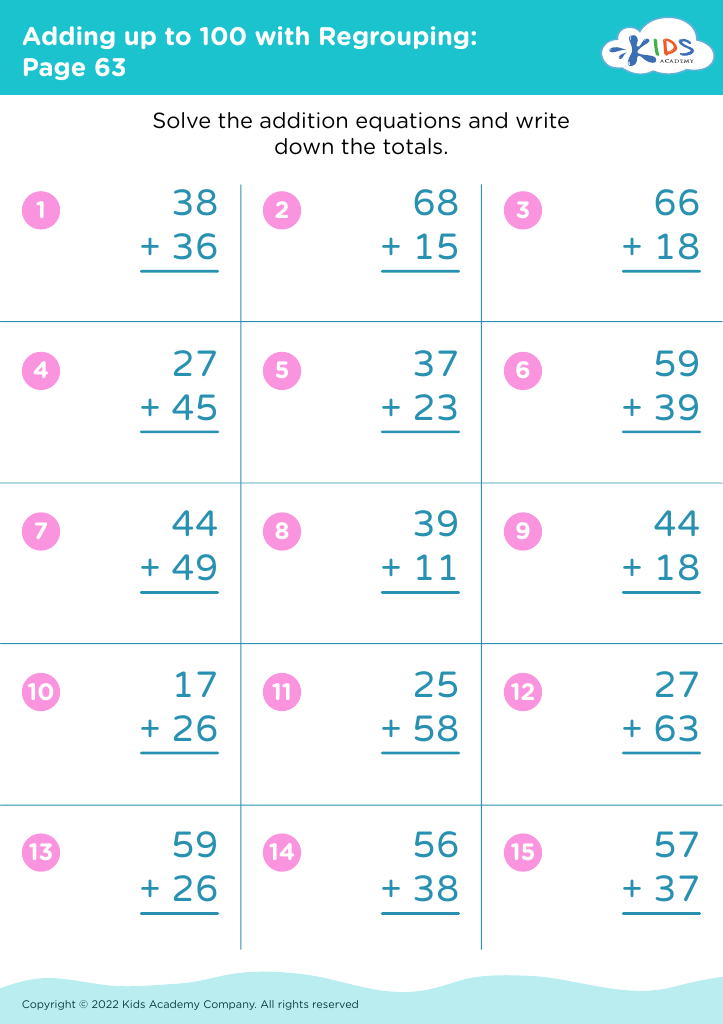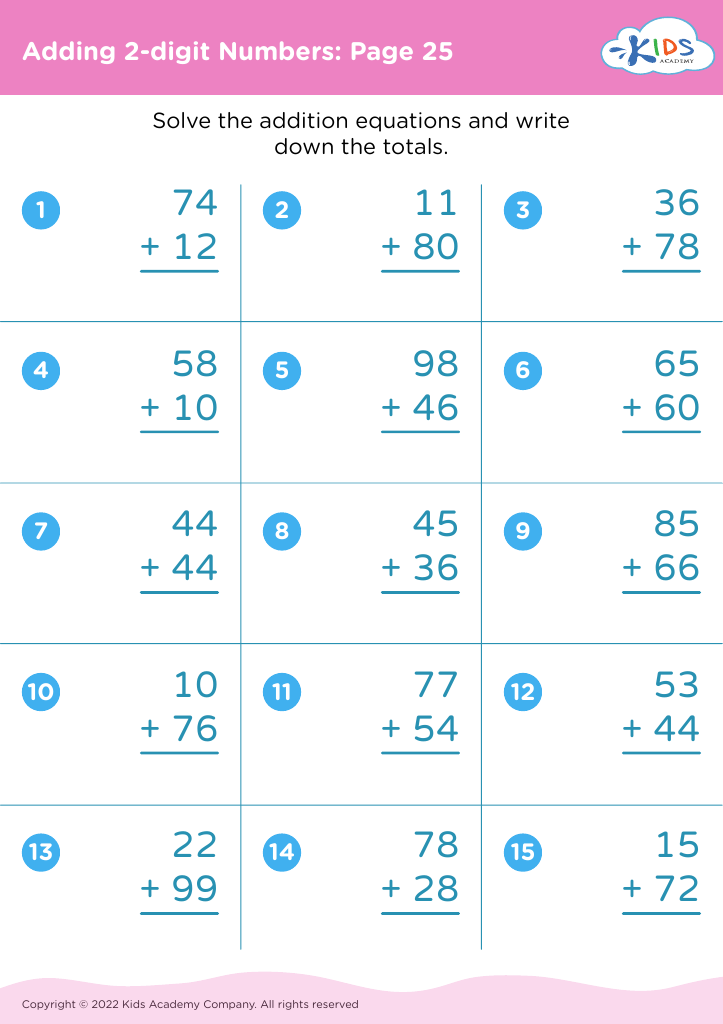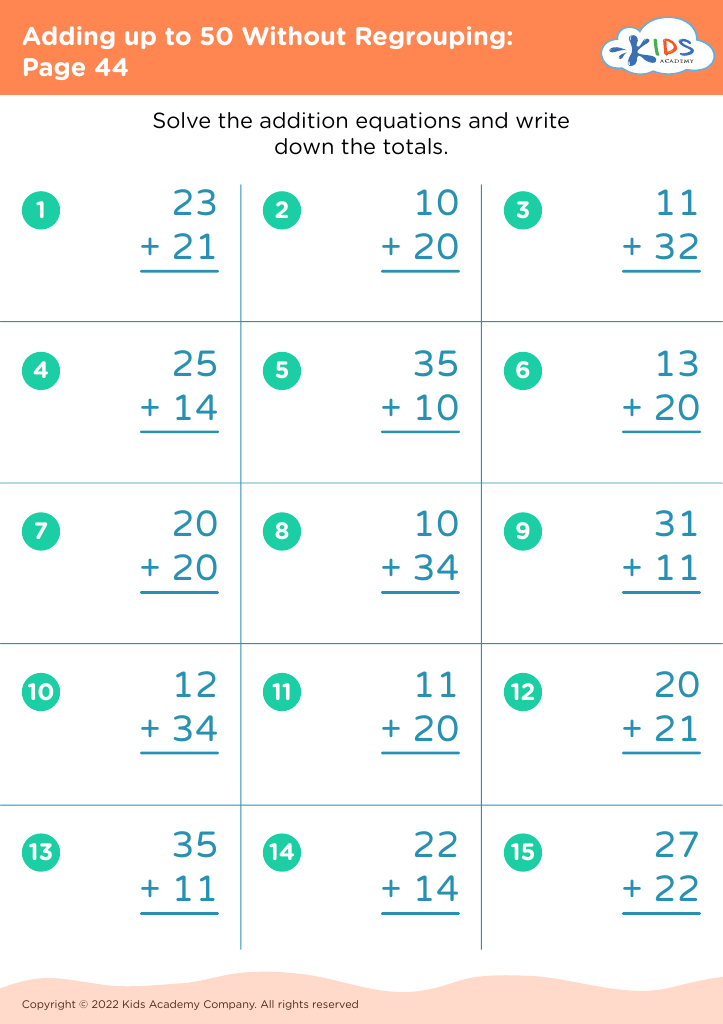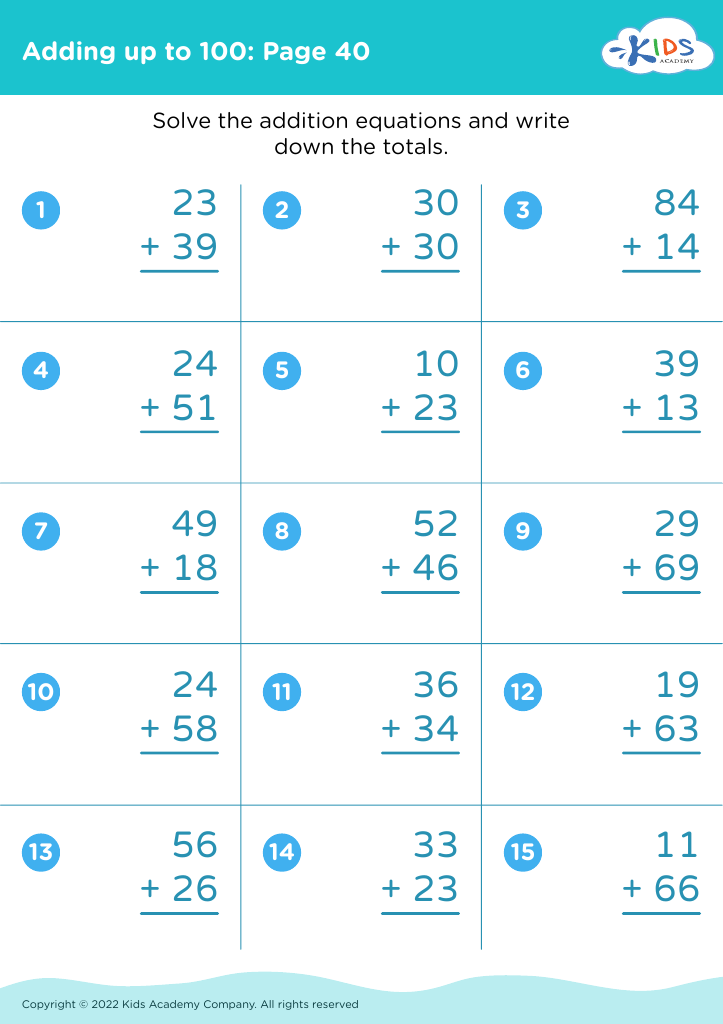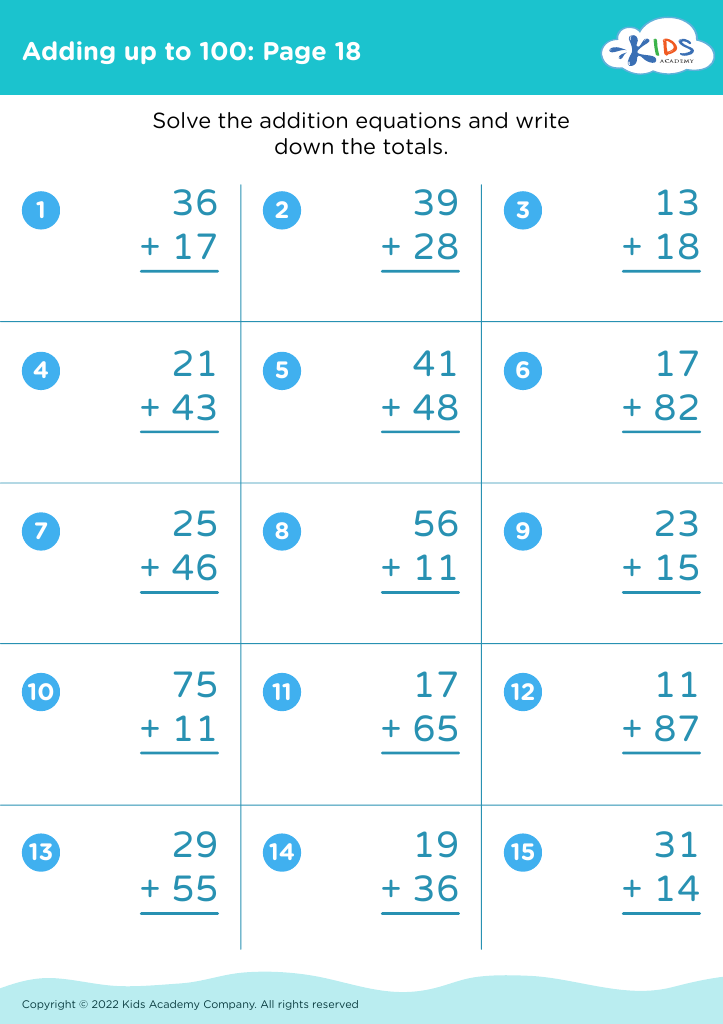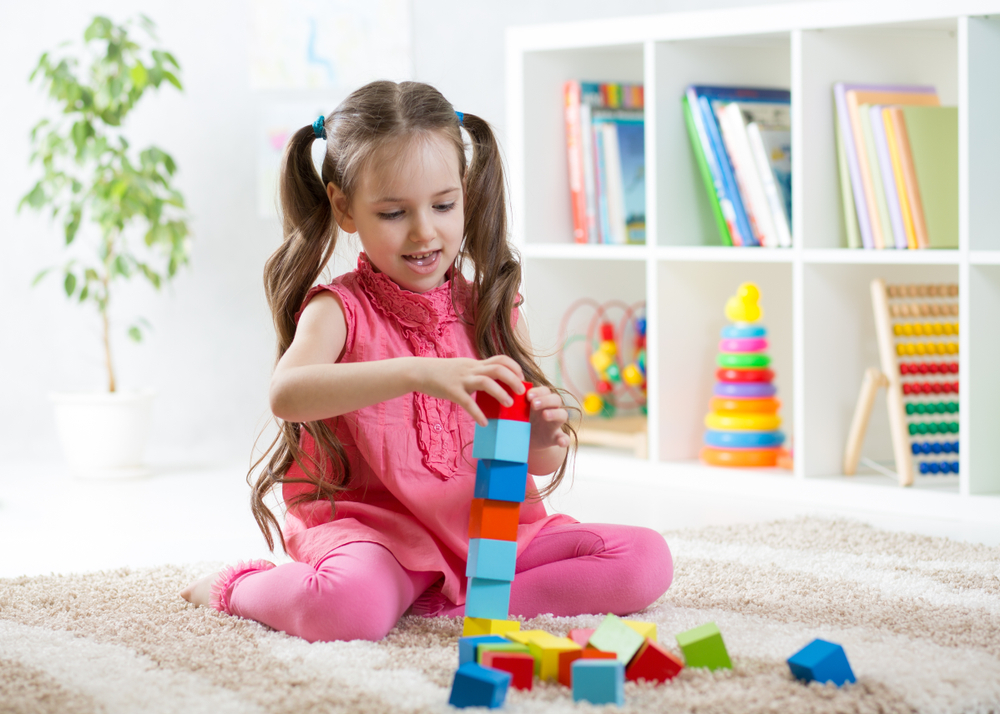Enhance number recognition Math Worksheets for Ages 3-8
19 filtered results
-
From - To
Discover our Enhance Number Recognition Math Worksheets, designed specifically for children ages 3-8! Our engaging, interactive worksheets help young learners develop essential number recognition skills through a variety of fun activities. Featuring colorful illustrations and captivating formats, these resources make learning numbers exciting. Your child will practice identifying, writing, and counting numbers in an enjoyable way that fosters confidence in their mathematical abilities. Tailored to align with early childhood education standards, our worksheets cater to diverse learning styles, ensuring every child can thrive. Dive into our collection and support your child’s success in math today!
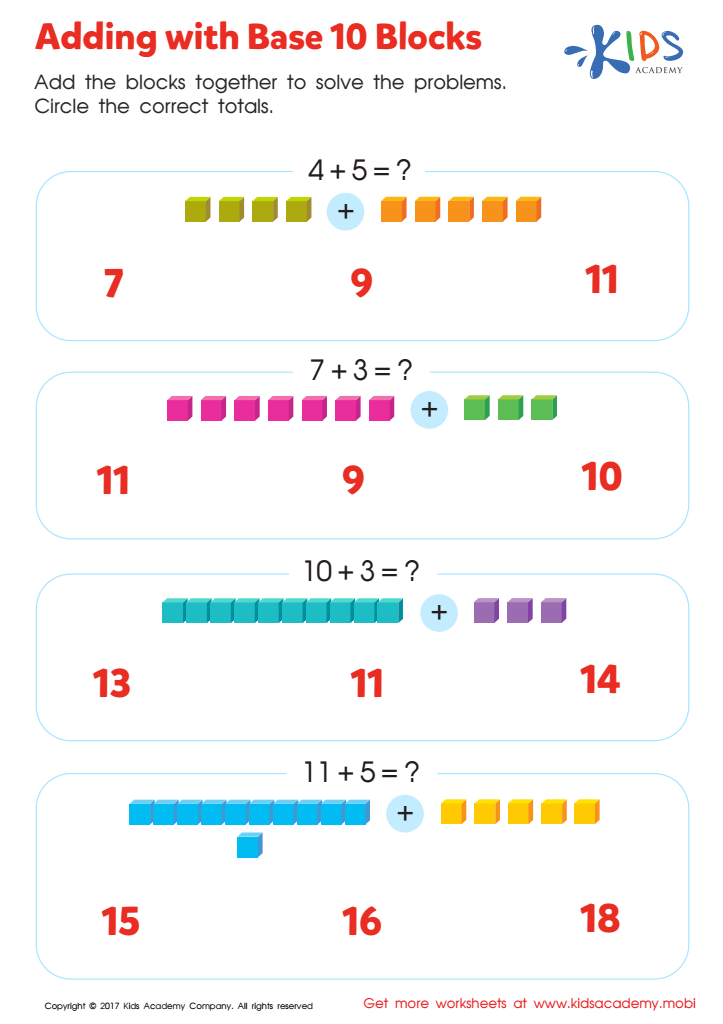

Adding with Base Ten Blocks Worksheet
Enhancing number recognition skills for children aged 3-8 is crucial for laying a strong foundation in early mathematics. During these formative years, children develop essential cognitive abilities that shape their future learning trajectories. Number recognition is not just about recognizing numerals; it is a gateway to understanding quantity, relationships, and basic arithmetic.
When parents and teachers focus on improving number recognition, they empower children to develop confidence in their mathematical abilities. This competence is critical, as positive early experiences with numbers can encourage a lifelong interest in math. Additionally, strong number recognition skills correlate with better performance in math-related subjects later in life, influencing a child's overall academic success.
Furthermore, engaging children in playful and creative number recognition activities fosters social skills and cognitive development. These interactions provide opportunities for cooperative learning and can strengthen the parent-child or teacher-student bond. By integrating number games and diverse teaching methods, both parents and teachers can create an enriching learning environment that caters to different learning styles.
In summary, prioritizing number recognition for young learners is integral to cultivating their mathematical intuition, confidence, and enthusiasm for learning, ultimately shaping their future educational experiences.




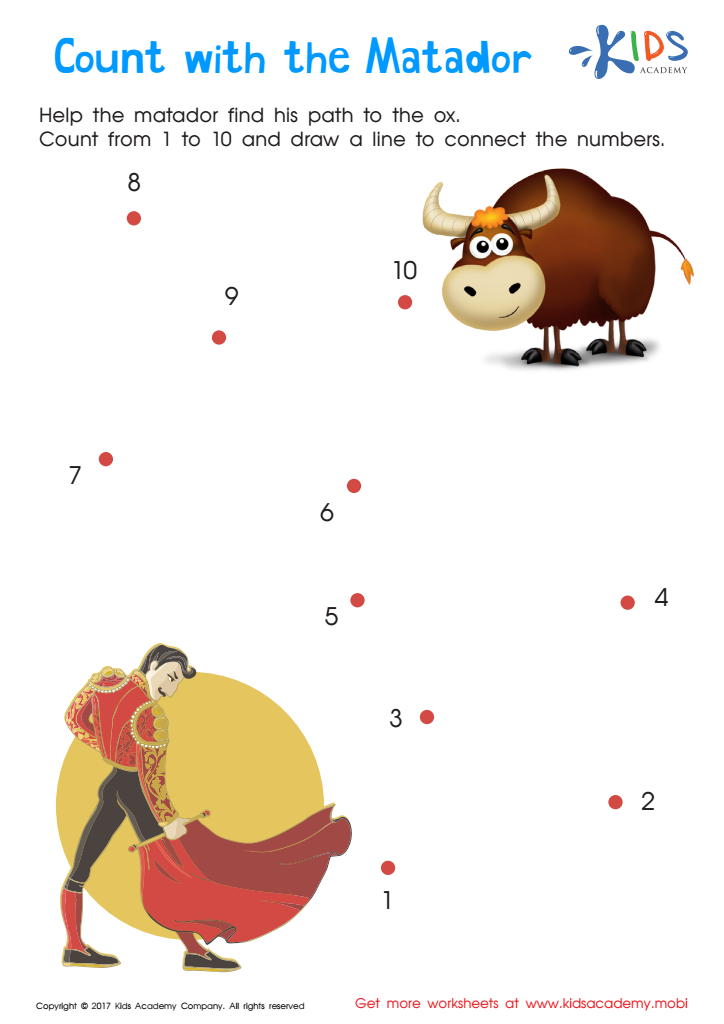
 Assign to My Students
Assign to My Students
